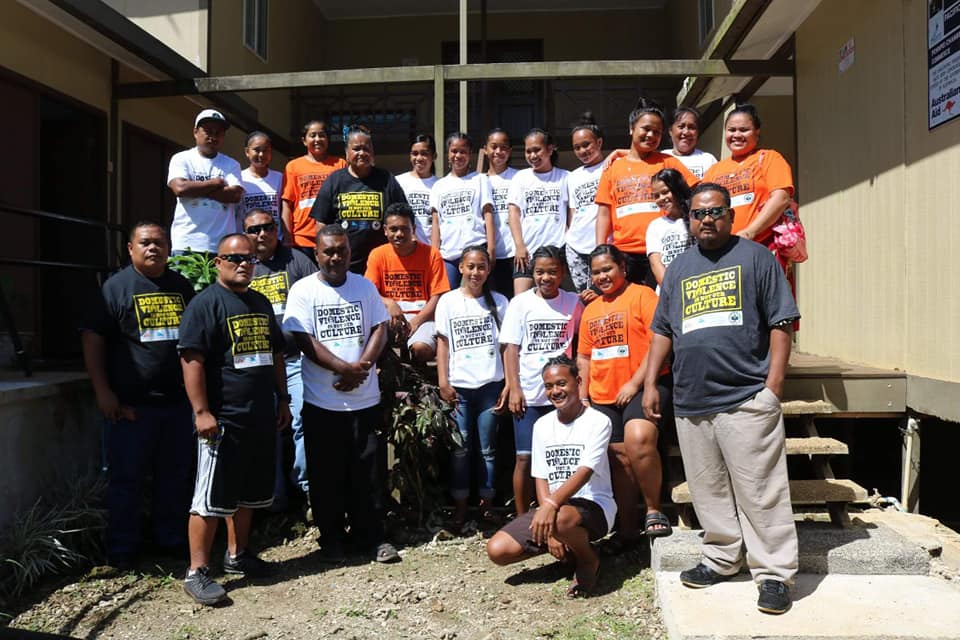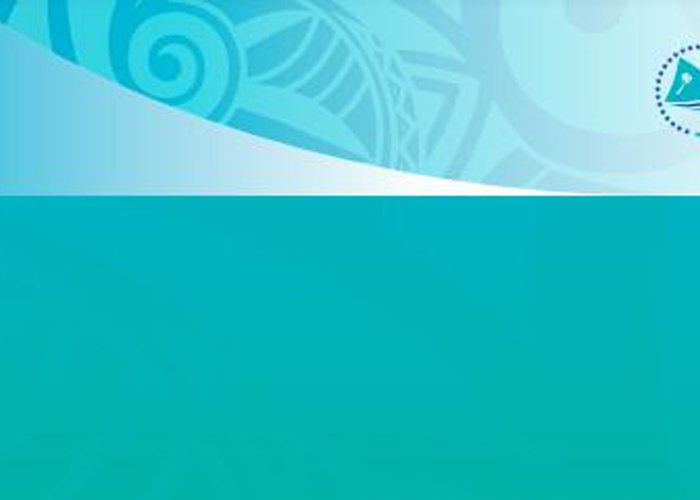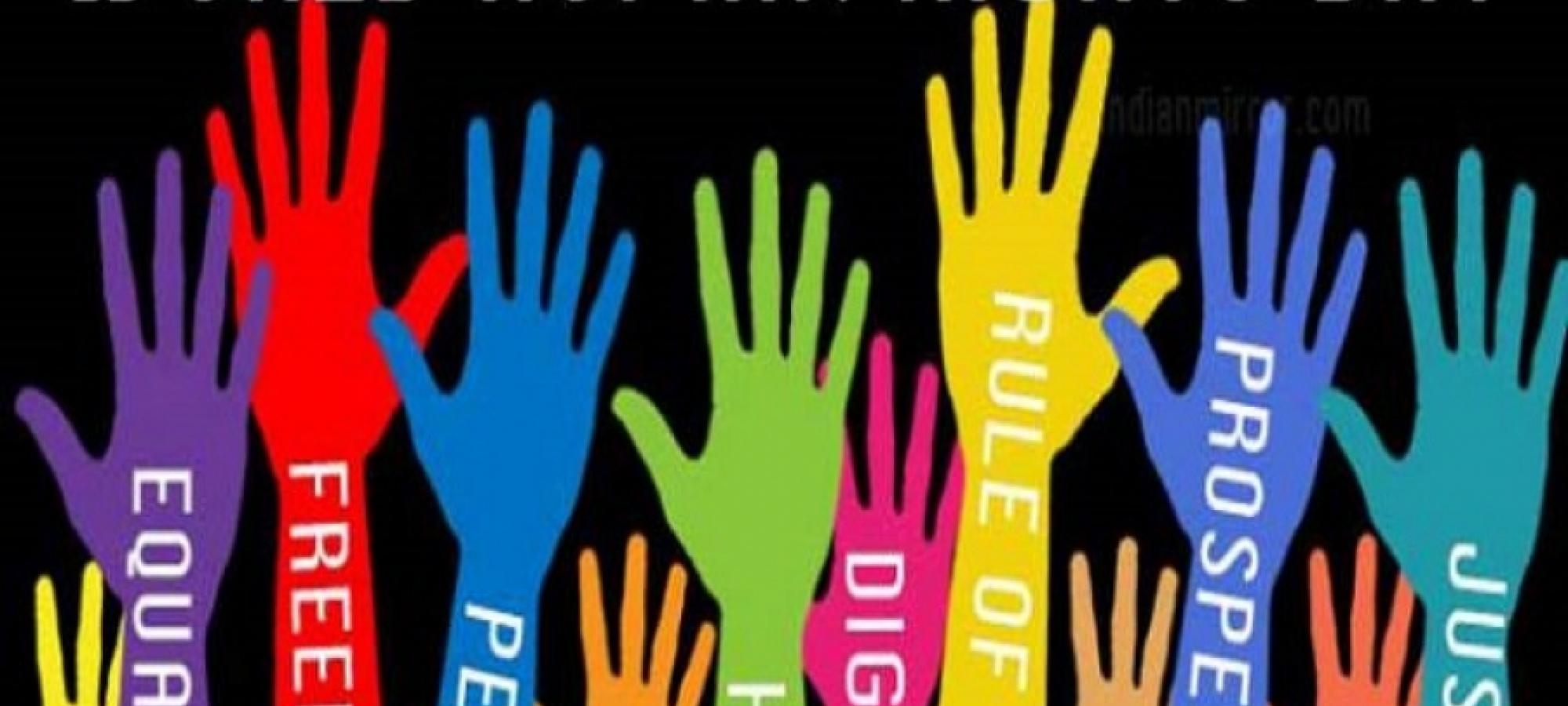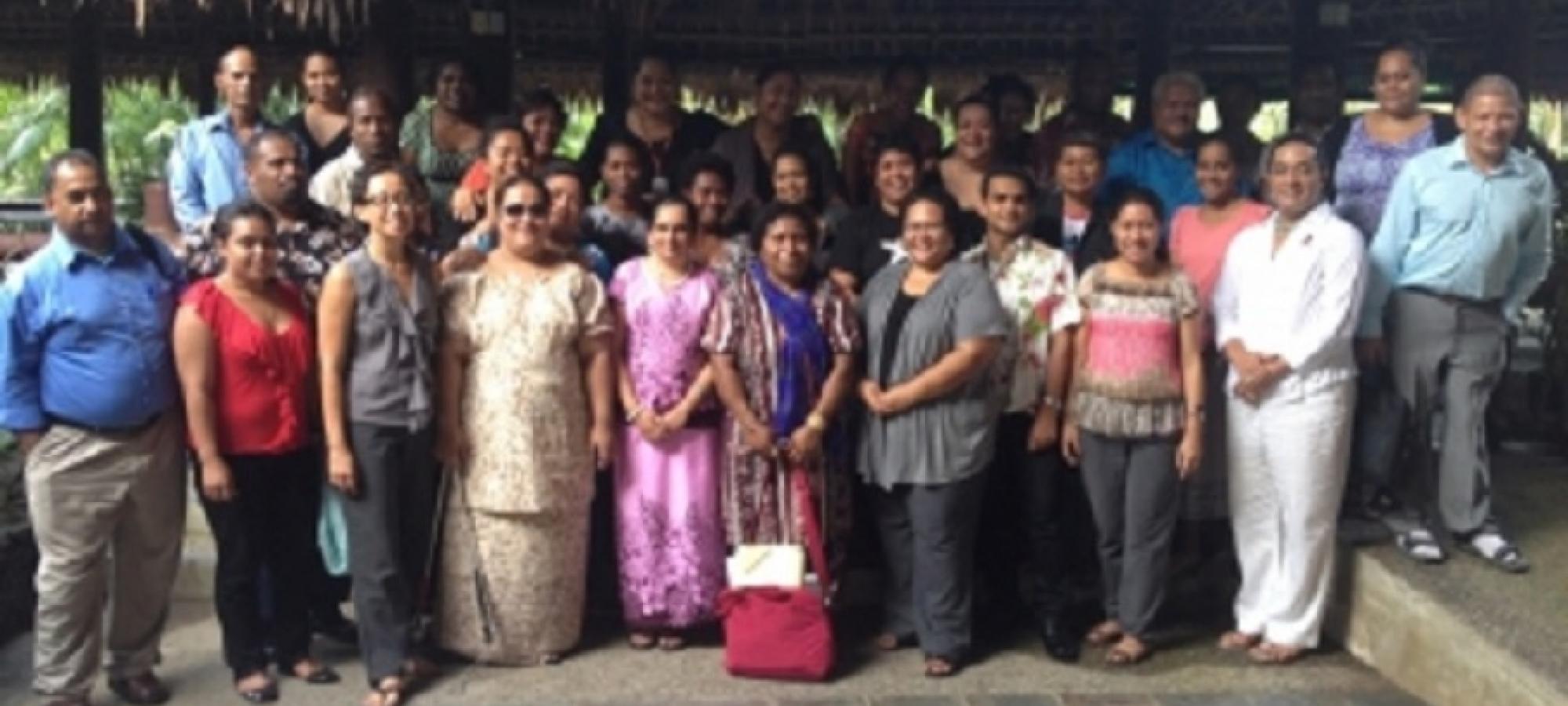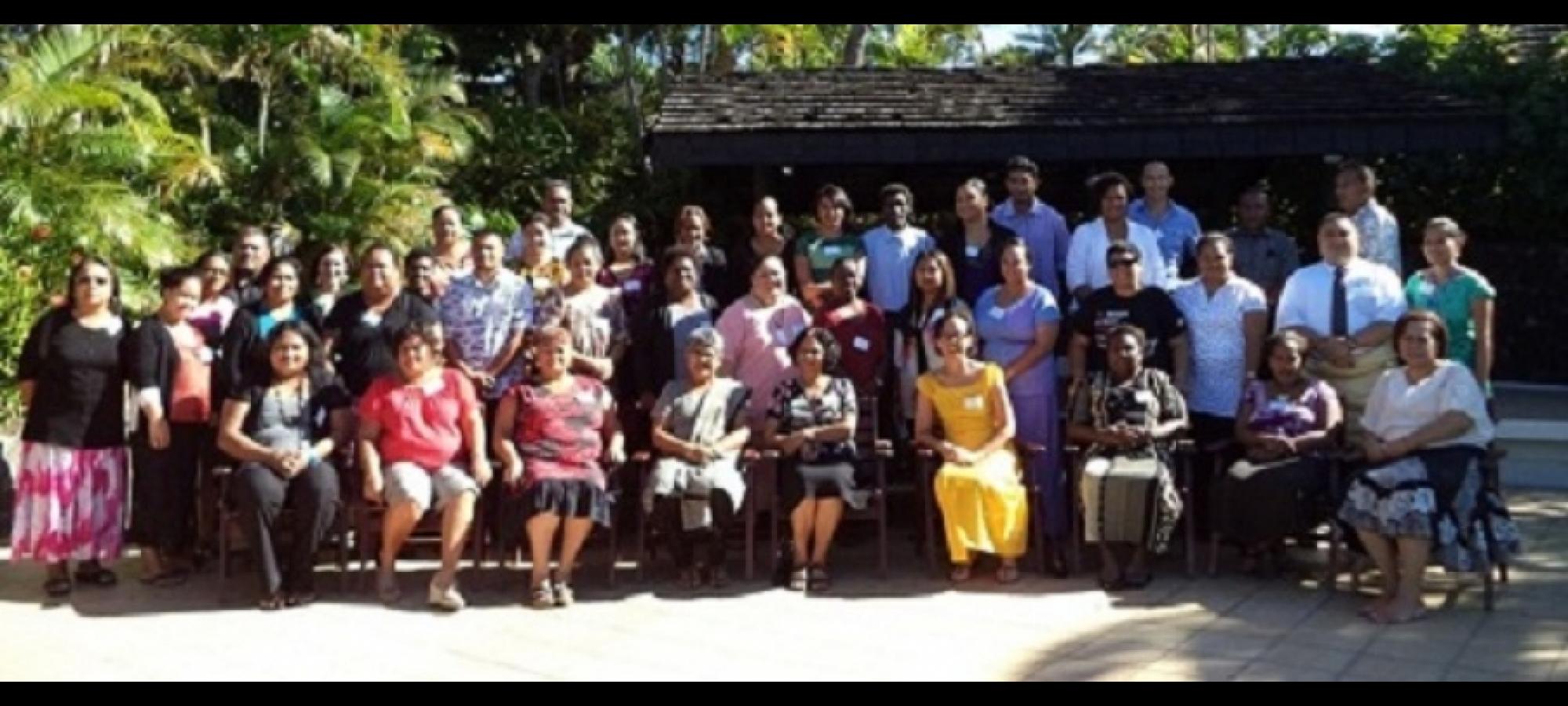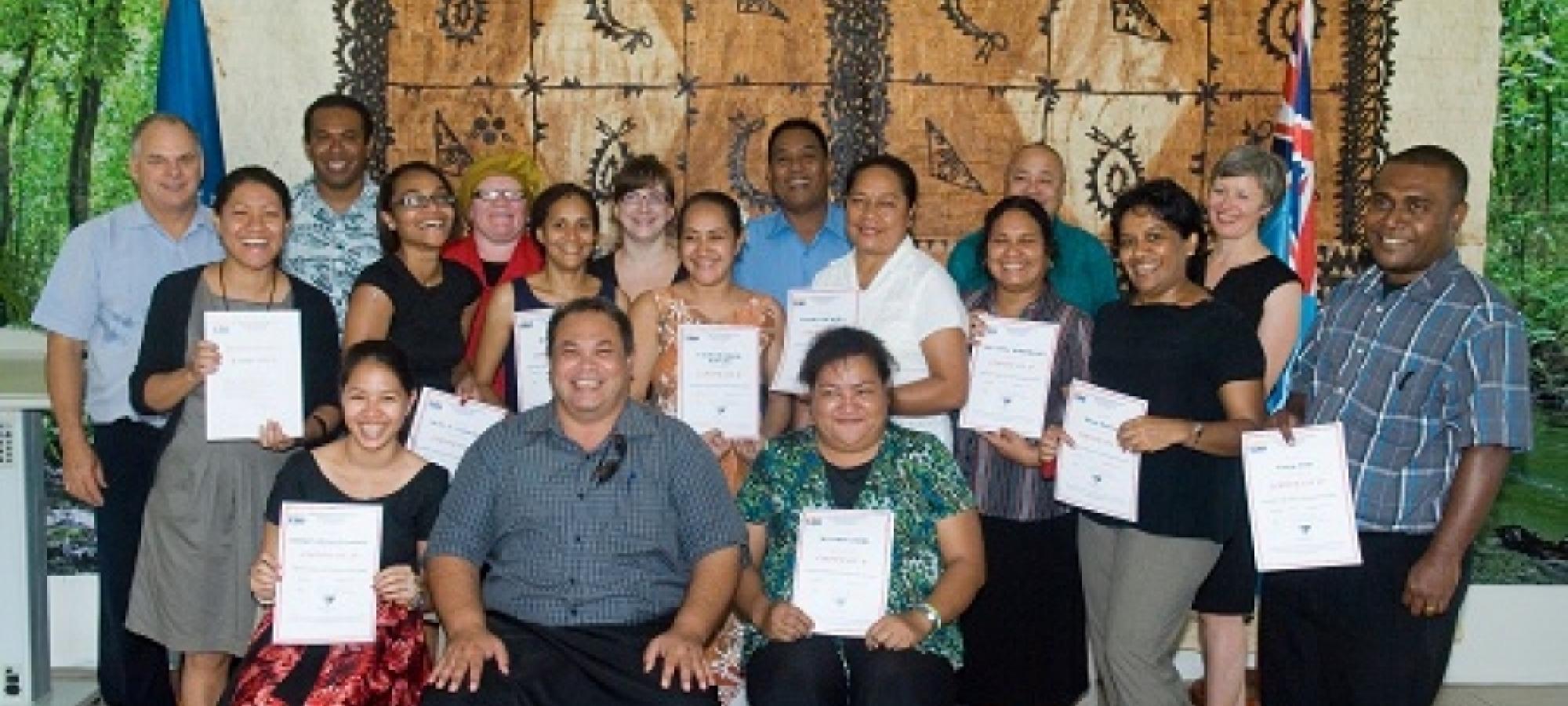#IWD2022 CREATING SAFE SPACES FOR WOMEN IN CHUUK IS CRITICAL SAYS ELEANOR
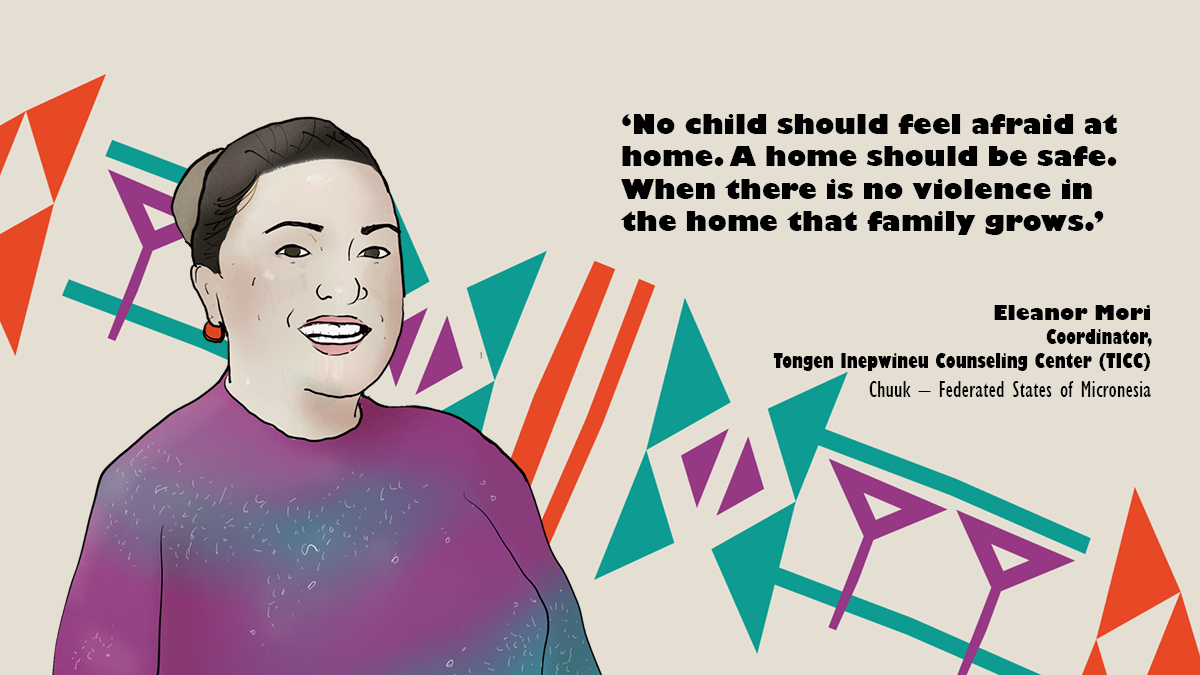
To celebrate women in the Pacific we're sharing a series of Herstories of women and women's movements who have collectively struggled, lobbied, stood in solidarity and supported each other and survivors of violence against women, and triumphed. This is a story of Eleanor Mori, a woman leader who is the Coordinator of Tongen Inepwineu Counseling Center (TICC) at the Chuuk Women's Council (CWC).
Eleanor Mori is the Coordinator of Tongen Inepwineu Counseling Center (TICC), the first crisis support centre for women and girls in the Federated States of Micronesia (FSM). Prior to joining TICC, she worked at the Social Affairs Office providing services to elderly and aging citizens. A year into her new job, Eleanor says work at the centre is both challenging and eye-opening.
Seeing women and girls who come into the centre having experienced some form of abuse has fueled her passion for the work.
‘‘No child should feel afraid at home,’’ she said, adding: ‘‘A home should be safe. A mother should feel safe. When she is healthy and strong, she can take care of the kids and they grow up to be healthy and strong. When there is no violence in the home that family grows.’’
The establishment of TICC — initiated by the Chuuk Women’s Council (CWC) — has created a safe space where Chuukese women feel they can finally speak up, something that they are typically hesitant to do. Nationwide, one in every three women in FSM experience physical and/or sexual violence by a partner in their lifetime.[1]
‘‘Our women didn’t really like to talk about what goes on in their relationships and it has been a process to win their trust. Now, when they see TICC staff in their communities, they are more open and talk to us about anything.’'
The centre’s work is being taken seriously by authorities.
Where previously three witness statements were needed in addition to the centre’s case report before making its final way to the Attorney-General’s Office for further processing, now the case report alone is enough to begin the investigation.
This is a significant achievement and support for TICC clients. This means survivors are not additionally or unnecessarily burdened. To aid in its work, TICC has established a network of 35 family champions throughout the main island with plans to recruit more in the outer islands. The champions, both young and old, refer clients to the centre and accompany them to counselling and referral services (such as medical, police or legal services) if needed. The family champions are TICC’s eyes and ears in the community.
The centre has trained health assistants (with access to dispensaries and transport) and plans to link them to family champions.
Eleanor’s vision for TICC’s future was recently achieved with the centre’s expansion to include phone counselling. Next, she hopes the centre may create a separate, dedicated space for greater client privacy, a day care centre and shelter, a gap TICC addresses by developing safety plans with clients, who choose a safe house and host family with TICC providing remote support.
‘‘This stuff doesn’t just happen between the hours of 8 to 5,’’ said Eleanor, adding: ‘‘That’s why we need a safe house where mothers can go for the night and stay longer if they need to.’’
Currently the only shelter that exists in Chuuk belongs to the Human Trafficking Division under the National Police.
On her leadership style, Eleanor says it is all about ‘‘having mutual respect and faith in one another’’ that the assigned activities will be done.
Between TICC and CWC, there are women aged 20 to 60 and balancing the generation gap while providing space and opportunities for the younger women to flourish has been high on her agenda.
Launched in March 2020, TICC provides free, confidential counselling and referral support to survivors of domestic violence, rape, sexual harassment and child sexual abuse through trained safe counsellors.
The centre is part of the CWC, which has received funding and extensive on-going technical support from the Australian Government through the Pacific Women Lead formerly known as Pacific Women Shaping Pacific Development Program. Tongen Inepwineu means ‘Love of the Family’ in Chuukese.
ENDS
[1][ FSM Family Health and Safety Study, 2014, FSM Department of Health and Social Affairs
|
One of the largest global commitments to gender equality, Pacific Women Lead aims to promote women’s leadership, realise women’s rights, and increase the effectiveness of regional gender equality efforts. Australia has committed AUD 170 million to the five-year programme, including through its partnerships with the Pacific Community (SPC) Human Rights and Social Development (HRSD) division, women’s funds and other development partners. HRSD Pacific Women Lead is at the centre of SPC’s regional work for gender equality, serving as secretariat to the Governance Board and providing technical, convening and funding support to government ministries, civil society and other partners. For more information about the program’s design refer to the SPC HRSD website or the high-level design framework
|




